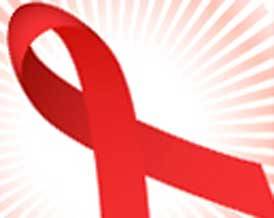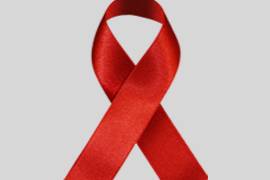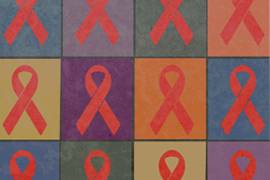
Criminalizing HIV Does Not Make Us Safer
Blog Search
It is no surprise that a lively discussion has developed after news broke about an appeal we filed in an HIV criminalization case. We represent Nick Rhoades, an HIV-positive man living in Iowa who was sentenced to 25 years in prison and life time sex offender status as a result of a one-time sexual encounter with another man during which they used a condom.
Among the most troubling comments is the belief among some that it should be required for people with HIV to disclose their status before having sex, and that the failure to do so should land them in jail.
But people who say "just disclose" perhaps do not realize the difficulties—and sometimes outright danger—involved in disclosure. And hardly anyone even talks about or contemplates protecting the HIV-positive person from the negative ramifications of re-disclosure by their sexual partner or potential sexual partner. Furthermore, disclosure does not necessarily prevent prosecution and conviction under these laws, because it is up to the HIV-positive person to prove that s/he disclosed—and every one of these sexual situations is "he said, s/he said."
What we really need to do is create an environment in which people with HIV feel safe to disclose this information voluntarily to their sexual partners. The criminalization laws do nothing to foster that environment—and, in fact, contribute to greater reluctance to disclose. We have a long way to go before we will have reduced the stigma and discrimination surrounding HIV to a level at which people will begin to feel safe disclosing or being open about their status.
In the meantime, we all must recognize that choosing to have sex presents certain risks, and that we all can control the degree of risk with which we are comfortable. But we don't need our partner to tell us his/her status to do that. If your tolerance for risk is zero, then you shouldn't have sex with anyone—period. If your tolerance for risk is just above that, then you should only have protected sex within a long-term, committed relationship where the parties involved have been tested and shared the results. And you can keep moving up the scale of risk tolerance/sexual interaction from there. But if your strategy for remaining negative is to have unsafe sex and avoid people with HIV by counting on the person to tell you—well, that plan is just designed for failure. The possibility of criminally prosecuting people with HIV endangers public health by lulling everyone else into a false sense of security that somehow these laws will prevent them from getting HIV.
To truly stamp out HIV stigma and discrimination, we need to engage in this discussion, both within our community and more broadly. From a public health perspective, the current system of criminal laws and prosecutions doesn't make any sense in terms of encouraging the behavior we want and discouraging the behavior we do not want—and we need to start dismantling and reforming that system. We are hopeful Lambda Legal’s involvement in Mr. Rhoades’s case will help foster this dialogue and set us along the path to a healthier and safer place for all of us.
Click here for more information about the case, Rhoades v. Iowa




